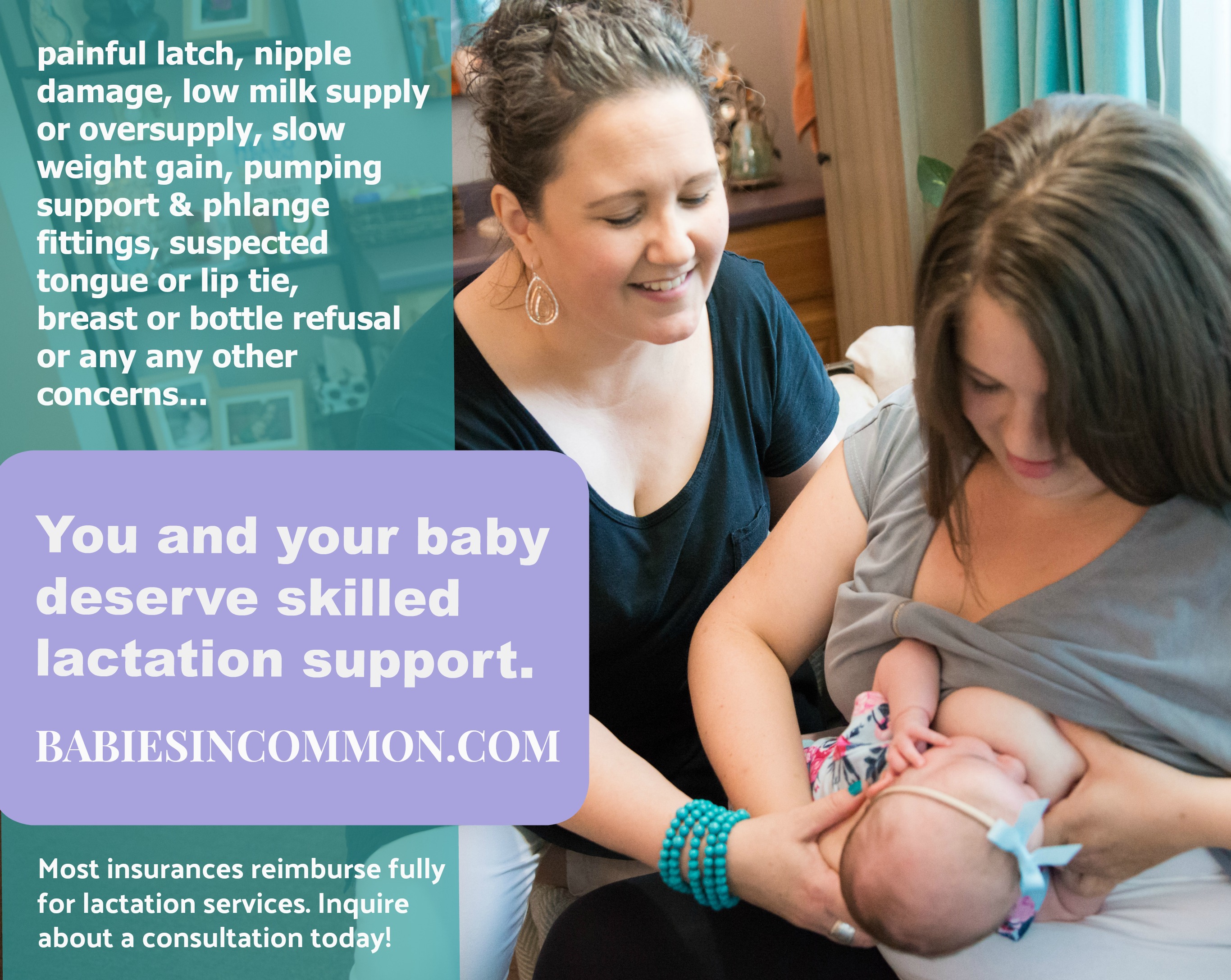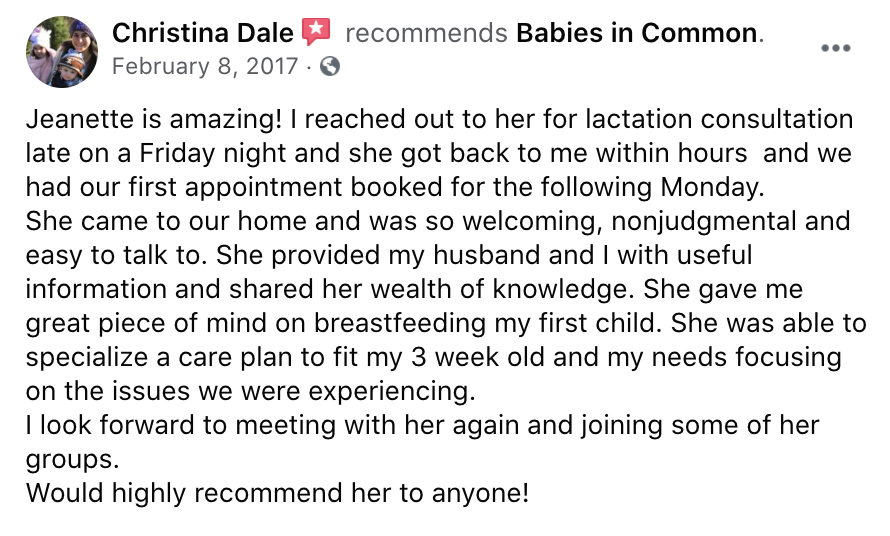Feeding Babies
PRENATAL EDUCATION
The first thing to support feeding is to take a thorough prenatal breastfeeding class, like our Breastfeeding Ready class, a 3-hour prenatal class for you and your birth partner or someone who will be with you a LOT during the first hours and days after your baby arrives.
Having a good transition from womb to breast (or chest) and from colostrum/first milk to mature milk in the first hours and days of your baby's life actually starts with your birth and the first couple hours after birth. We discuss how to best prepare and advocate for yourself and your baby in the prenatal breastfeeding class but taking comprehensive prenatal birth classes (and our New Baby & Postpartum Ready class) helps set you and your baby up for success. Be sure to check out all the prenatal classes offered by Babies in Common by clicking here.
PUMPING & BOTTLEFEEDING
There is an online class called Pump & Bottle Ready (it's a recorded class, so you can watch it at 2am, if you want to!) all about pumping, flange sizing, milk storage and bottlefeeding. Click here to learn more!
PRENATAL CONSULTATIONS
Sometimes a prenatal feeding consultation is warranted, like if you've taken a prenatal breastfeeding class and still have concerns. Or you know you have risk factors for problems with latching or milk production. Or you tried to breastfeed a previous baby and would like a plan to make success more likely for this new baby.
FEEDING CONSULTATIONS
After baby arrives, while breastfeeding is "natural", there are two people learning how to do it. Some folks make plenty of milk and babies latch fabulously and grow well. Awesome!! That's wonderful! BUT if that's not the case for you and if you have any of the following concerns (this is not a full list of issues one might have, of course), then it's an appropriate time to schedule a feeding consultation as soon as possible.
Reasons to have a feeding consultation are:
- sore or damaged nipples
- feeling like or knowing there's not enough milk to feed your baby
- oversupply of milk or baby choking on milk due to heavy spray
- suspected thrush (yeast infection) in the nipple/breast or other nipple infection
- recurring plugged ducts or mastitis
- baby isn't latching (breast refusal)
- tongue-tie & lip tie (suspect tongue or lip tie? Schedule a visit before you decide what to do about it, and/or one before and/or after you've had it released)
- pumping concerns or just to have a flange fitting to see if there's a flange that would help you yield more milk (I have many types and if we find something that works better than what you have, you'll usually leave with the flanges that work for you at no additional cost)
- baby isn't gaining weight appropriately
- learning about alternative feeding methods
- going back to work
- baby is refusing the bottle or leaking from bottle or gagging when feeding on bottle
- reflux, colic or excessive crying
- baby losing weight or not gaining when baby was gaining well previously
- you just want to ask a bunch of questions and have the undivided attention of an International Board Certified Lactation Consultant
To schedule a feeding consultation, click here.
To get our FREE Parents' Starter Guide to Feeding Babies, click here!


